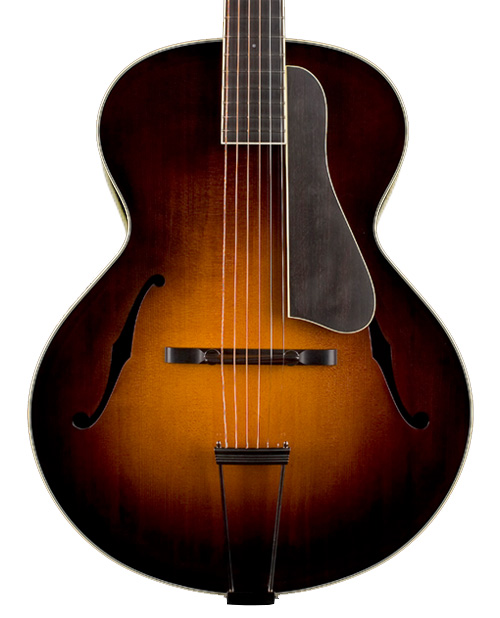The acoustic archtop guitar is a curious form. The bodies of most steel-string guitars are made from thin, flat pieces of wood, but an archtop is more like a violin-family instrument in that its top and back are carved from thicker selections, taking on gracefully arched shape and a sound that’s a bit punchier and with a more pronounced midrange than that of a typical flattop.
By today’s standards, the mother of all archtops—Gibson’s L-5—might seem quaint, but it was state-of-the-art when it was introduced, in 1923. This modestly sized guitar had a 16-inch lower bout and ample projection to be heard in small jazz combo—or, courtesy of Maybelle Carter, who played a 1928 L-5 for many years as the matriarch of the Carter Family, in a country group.
In the 1930s, as the size of the typical jazz ensemble swelled, so too did the acoustic archtop guitar’s proportions. The L-5’s lower bout grew to 17 inches, in the service of volume and power; the premier archtop luthier John D’Angelico also adapted the 17-inch body as standard. Larger still at 18 inches was a guitar like Gibson’s Super 400. Upping the ante, Stromberg Guitar’s massive Master 400, played by Count Basie’s longtime guitarist, Freddie Green, measured 19 inches.
Just as recent years have seen a renewed interest in smaller-bodied flattops, the 16-inch non-cutaway acoustic archtop, once regarded as outmoded, is also being reexamined. Though there might not be many options for new production models, a handful of great examples is available at the lower end of the price spectrum, making an archtop easily accessible to any guitarist—regardless of stylistic tendencies—wanting to add a new color to his or her tonal palette.
Godin’s 5th Avenue (around $533 street) takes its inspiration from 1950s archtops. It’s made from Canadian wild cherry and has a custom polished finish whose texture mimics the French polish found on the oldest archtops and on high-end classical guitars. With a slender neck, it’s designed for modern playability.
Shop Godin on Reverb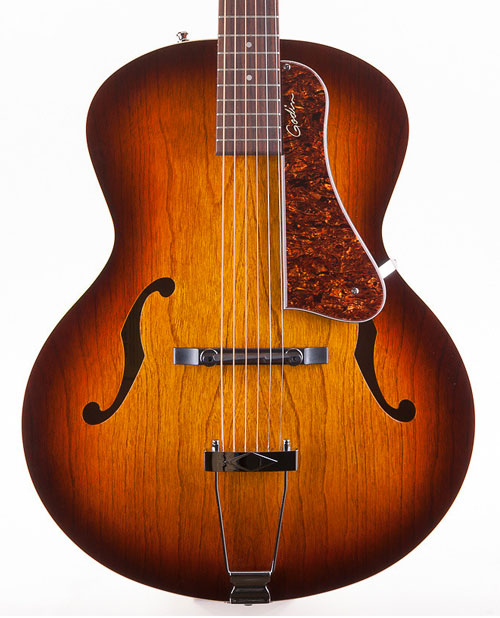
Gretsch’s Roots Collection offers affordable, updated versions of the company’s guitars, banjos, mandolins, resonator guitars, and ukuleles from the early 1900s through the 1950s. The archtop of the herd, the G9550 New Yorker ($499) boasts a solid spruce top and maple back and sides. It’s also available with a floating single-coil pickup (the 9555 model, which goes for $599.)
Shop Gretsch on Reverb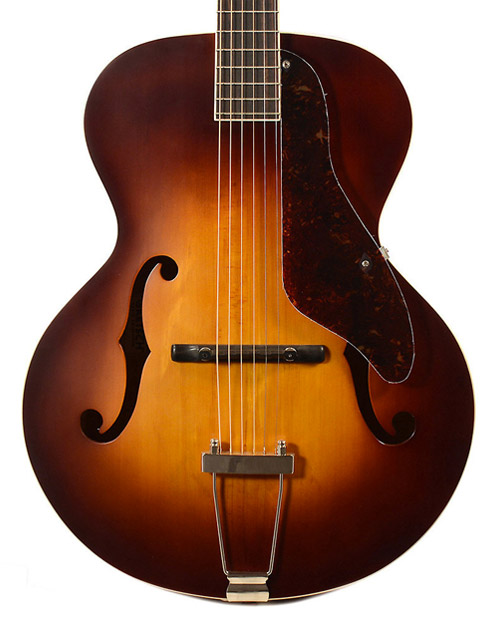
The Loar—the company that takes its name from Gibson’s Lloyd Loar, who designed the original L-5—offers a range of budget-friendly 16-inch acoustic archtops. The least expensive, the LH-300 ($599.99), has a solid hand-carved spruce top and maple back and sides, while the costliest, the LH-700 ($1,499.99) has an AAA spruce soundboard and AAA figured maple back and sides, all solid.
Shop The Loar on Reverb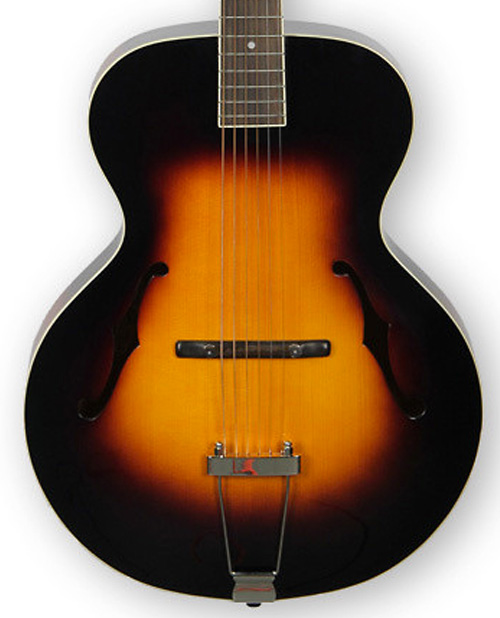
Eastman Guitars offers a full range of acoustic and electric archtops. The AR905, which takes its cues from modern boutique guitars, is the company’s flagship 16-inch non-cutaway model, made from AAA spruce and AAA flamed maple and featuring luxurious appointments like wooden binding and gold hardware. The AR804, meanwhile, is inspired by Gibson’s roundhole archtop guitars of the 1920s and ’30s. Both instruments surface on the used market for well under two grand.
Shop Eastmen Guitars on Reverb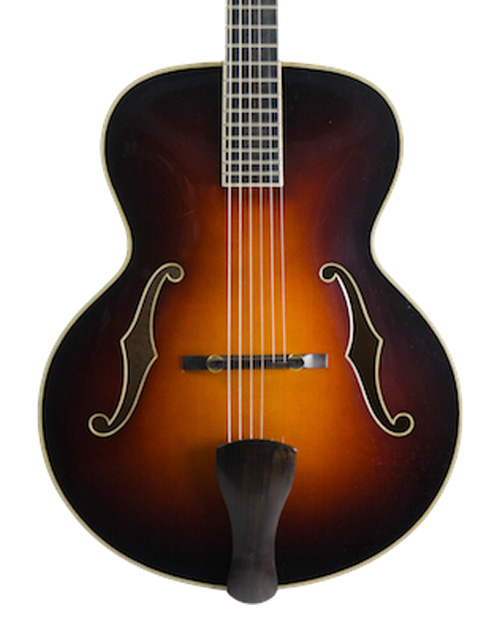
At the opposite end of the spectrum, the AT16 by Collings is made in extremely limited numbers—there are perhaps fewer than 100 in existence. Collings is no longer accepting new orders for this highly coveted interpretation of the original L-5, but you can be placed on a waiting list at a dealer like The Music Emporium (themusicemporium.com) or Acoustic Music Works (acousticmusicworks.com). Just be prepared to spend around $12,500 when your AT16 is finally available.
Shop Collings on Reverb